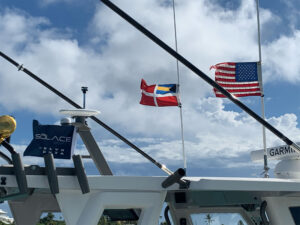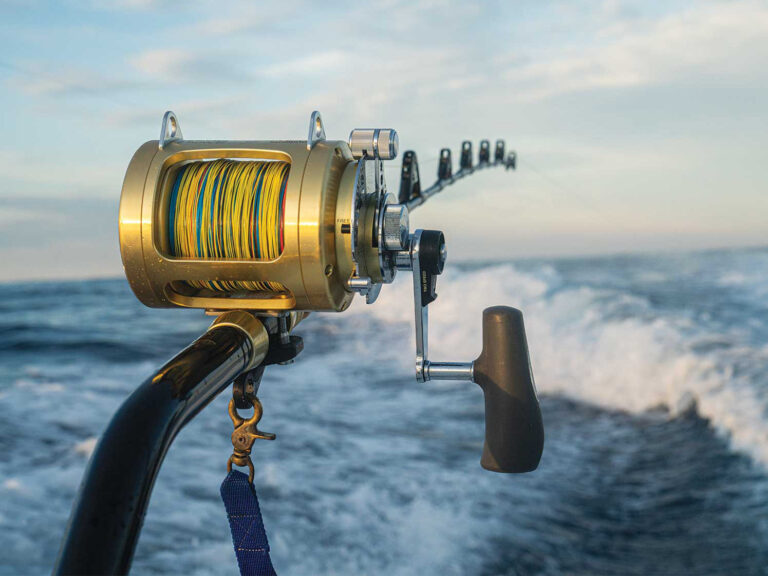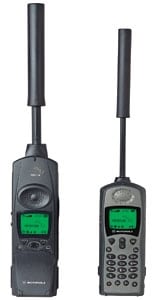
Every saltwater fly-angler envisions that special trip to a remote destination. We yearn for waters full of uneducated fish, as well as a general lack of other anglers, work demands and phones! But in reality, some of us need to stay in touch when we’re away.
This raises an important question: How can we visit these faraway spots and stay connected at the same time? There are a number of ways, and we’ll take a look at a few.
Satellite and Cell Phones
If you truly need voice and text communication anyplace in the world, it’s best to consider a satellite phone. An Iridium sat phone works in the Seychelles, in the west side of Andros Island, Bahamas, and in your own backyard. That’s the beauty. The disadvantage can be the relatively steep cost of owning and operating a sat phone.
For travelers, a great alternative is renting one. On a recent trip to an off-grid lodge in Costa Rica (which had neither phone nor Internet service), I rented an Iridium phone from All Road Communications for about $50 per week. I bought an airtime card, but since incoming calls were free, I had my family call every evening at a predetermined time. It worked wonderfully!
You must remember, however, that sat phones require a clear view of the sky to function. You cannot set the phone on the nightstand and expect to receive calls. You’ll have to walk outside by the pool or dock.
Another option is a cell phone. Cell-phone service is surprisingly available in many remote areas of the world. If you want to use your own phone, you’ll need to have one with what’s called Global System Mobile technology, which is in about 80 percent of cell phones in the world. You can generally determine whether yours has it by checking your service provider’s website.
Next, you’ll want to explore your service’s international roaming capability, often explained in the Support or Frequently Asked Questions sections of a provider’s website. It’s important to determine whether your provider offers roaming in the country you plan to visit. Check the coverage map. You may also have to determine if your particular type of phone will work in that country. And don’t forget to consult the section that describes how to make and receive calls once you arrive at your destination.
While you’re at it, make sure you check the roaming rate. This can be a big downside to taking your phone overseas, as international roaming can be very expensive. Rates of $2 to $3 per minute are common. Don’t be the victim who takes a trip to Mexico, chats on his cell phone as if he were home and is later shocked by a four-figure bill!
Other Phone Alternatives
If your everyday cell phone will not work in the country you plan to visit, or if you’re searching for a cheaper option, consider purchasing or renting a GSM phone and buying prepaid service for that country. The phone will work both indoors and outdoors, and since incoming calls are usually free, your pals can call you inexpensively on their dime. You also don’t have to worry about your personal phone being lost, damaged or stolen overseas.
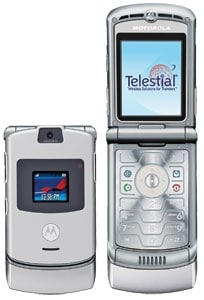
It’s critical to get an “unlocked” GSM world phone. Many phones sold by service providers are “locked,” meaning they work on only that provider’s network. A phone must be unlocked to operate on any worldwide network. Numerous frequencies are used across the globe, but a quad-band phone works in most places.
Finally, traveling anglers will need a subscriber identity module card. The SIM is a tiny smart card that fits in the phone, usually under the battery, and contains a serial number and a phone number, as well as additional information that identifies the phone on the network.
There are numerous online businesses that sell new and used unlocked world phones. I was able to buy a used quad-band Samsung unlocked world phone on eBay for less than $20. You can wait and buy a prepaid SIM card at a convenient store in the country you are visiting, or you can pay a little more and get one in your home country.
Wireless-solution company Telestial sells both world phones and SIM cards for just about any place on earth. If you buy your SIM card in advance, you’ll have your foreign phone number before you leave. Once you get off the plane at your destination, simply open the phone, insert the SIM, replace the battery and turn the phone on! After a few moments, you’ll see the typical display, with time and signal-strength indicator. You’re ready to go.
Be advised, however, that foreign SIM cards make your phone operate in the language of that particular country. If you buy a SIM for service in Guatemala, the phone will operate in Spanish. If you don’t speak the language, you’ll have difficulty setting up voice mail and checking your prepaid balance. You may want to tell your family and friends not to leave messages. Just call. If they reach you, fine – if not, try again later!
If you have a GSM phone already and don’t want to pay your provider’s roaming rates, you can attempt to unlock the phone and buy a prepaid SIM card. Instructions for unlocking phones can be found at www.thetravelinsider.info under Road Warrior Resources.
Outside-the-Box Communication
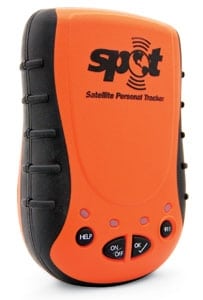
If you’re not interested in actually talking while away (or if you’ll be out of cell range), you might consider a satellite messaging device, such as the Spot Personal Tracker or ACR AquaLink. Paid subscription services are required for both of these devices, and they allow you to send simple “I’m OK” e-mails (which include your location) to designated individuals.
Currently, Spot covers a larger area than ACR, but ACR will be increasing coverage soon. More information is available online at www.findmespot.com and www.406link.com. Whatever option you choose, be sure to check the coverage maps before you commit.
The lodge may have dial-up or high-speed Internet access and possibly a computer for guest use. Dial-up will limit you to e-mail, and you won’t be able to use high-speed features like voice over Internet protocol.
If they have high-speed, you can use VoIP services such as Skype. Skype-to-Skype calls are free worldwide. For a small fee, friends and family back home can use Skype to call that prepaid foreign phone you are using. As an example, Skype calls from the United States to a Guatemalan cell phone are 16 cents per minute. Much cheaper than $4 per minute! Many lodges with high-speed Internet also have wireless networks, so if you take your laptop, you may be able to conduct business from the privacy of your own room.
These are just some of the ways to stay in touch on your next long-range trip. Keeping in touch is not all bad either – it sure is fun to call friends back home and tell them about all of the great fish you are catching!
Manufacturers/Services
ACR 406 link
www.406link.com
All Road Communications
www.allroadsat.com
Iridium
www.iridium.com
My World Phone
www.myworldphone.com
Skype
www.skype.com
Spot
www.findmespot.com
Telestial
www.telestial.com
The Travel Insider
www.thetravelinsider.info



